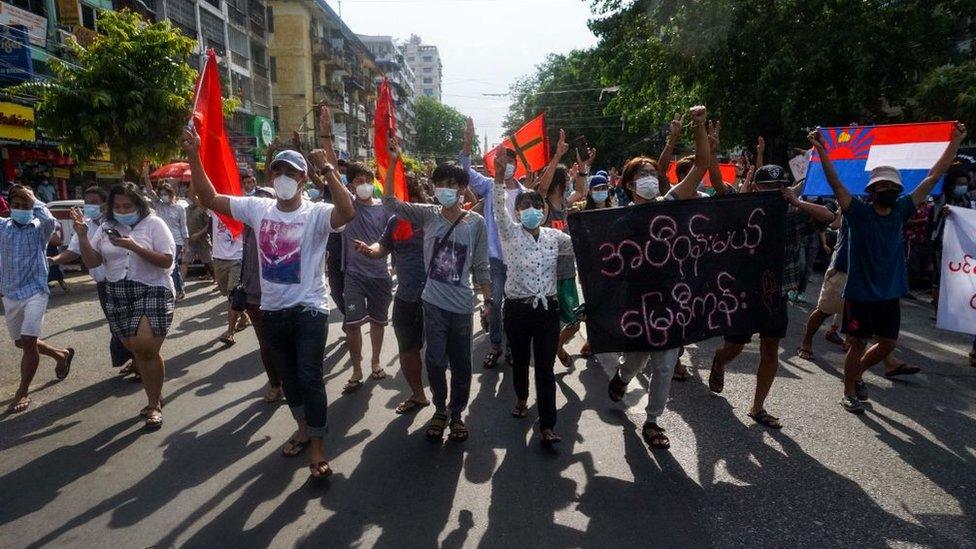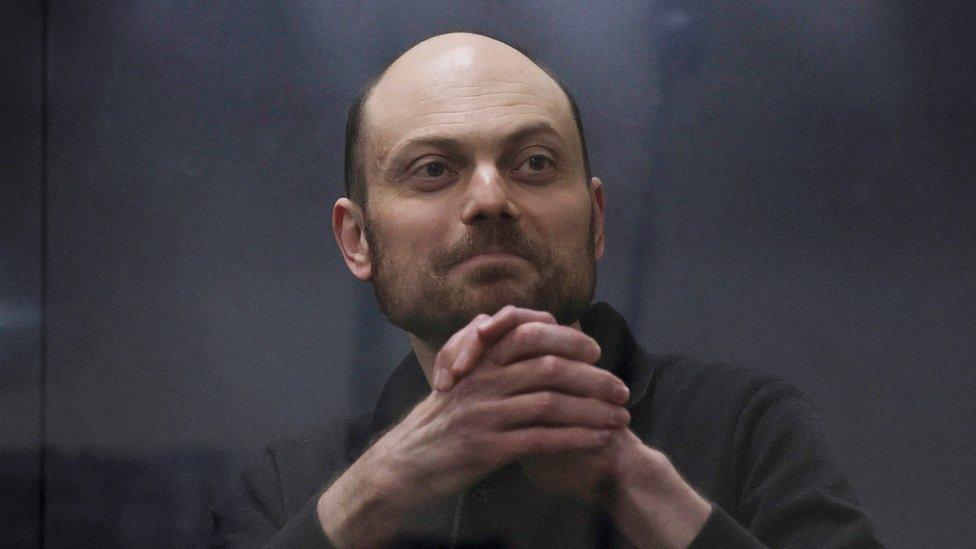Bi-2: Russia anti-war band arrested in Thailand faces deportation
- Published

Bi-2 are an alternative rock band critical of the war who have been touring outside of Russia since 2022
A Russian-Belarusian rock band with anti-war views that had been touring Thailand is under threat of being deported back to Russia, activists say.
Human Rights Watch has urged the Thai government not to deport Bi-2, who have been criticised by Moscow, saying the seven members face persecution.
The band was arrested for unauthorised shows while touring Phuket, a resort island that hosts hundreds of thousands of Russian tourists.
They are in detention in Bangkok.
But Thai authorities are yet to comment on the case publicly or respond to the BBC's questions.
A statement on the band's official Facebook page said they were facing deportation after being found guilty on 26 January of performing a gig without the correct permit. It said they had paid a fine for the breach.
But some of their supporters responded to the post, alleging the band had been targeted: "Russian authorities found an excuse to detain them."
The band says in their statement: "outside pressure played a significant role in our detention. We know that the reason for this pressure is [retaliation] for our creativity, our views, our position."
The band has also alleged that they could not understand the legal process with Thai police and courts, having not been provided adequate translation services.
Of the band's seven members, some are dual citizens of Australia and Israel, so they could be deported to those countries. But activists warn that at least two members only have Russian citizenship and could be sent back there.
Russian authorities are yet to comment on the band's situation and have not said if they sought their deportation.
But the band has been singled out by Russian lawmakers before for their "anti-Russian stance".
In May 2023, Russia's justice ministry labelled the frontman Yegor Bortnik a "foreign agent" for "opposing" Russia's invasion of Ukraine and "making negative statements" about Russia, its citizens and authorities.
The band had been touring outside Russia since 2022, including playing shows across Europe last year.
"They've been inconvenient for [the] Russian government for a while because they are a very big band and they are very obviously anti-war and anti-Putin. So they moved out of the country a while ago," a friend of one of the band members, Marjana Semkina, wrote on Facebook.
Thailand and, in particular, its desirable island holiday spots such as Phuket have seen a huge influx of Russian tourists since the war began in Ukraine two years ago.
Many Russians have fled the country to avoid conscription. By some estimates, nearly half a million Russians arrived in Phuket in the first half of 2023.
"If Thai authorities send them [Bi-2] back to Russia to face danger and persecution, it would be the first case under [Prime Minister] Sretta's government," Human Rights Watch's senior researcher Sunai Pasuk told the BBC.
"The Thai PM promised that his government will adhere to the principle of human rights so this is a crucial test."
It would also be the first case of the Thai administration forcibly returning a Russian national to Russia since the war began.
And it would be a breach of Thai domestic law preventing torture and enforced disappearances, as well as Thailand's obligations under international laws against torture.
Bangkok is a signatory to the UN Convention against torture, meaning it has an obligation not to return people to places where they face the risk of persecution.
With additional reporting by Thanyarat Doksone
Related topics
- Published11 May 2021

- Published30 January 2024
